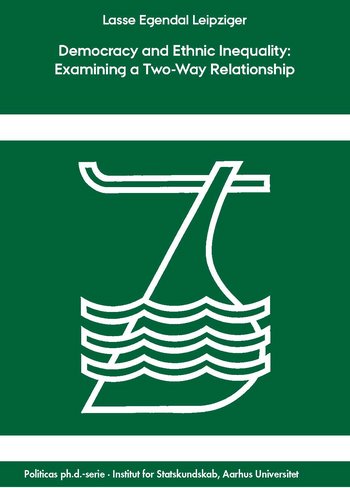Lasse Egendal Leipziger
Democracy and Ethnic Inequality: Examining a Two-Way Relationship

In many countries, inequality has risen, and democracy has come under pressure. These trends have sparked a renewed interest in the relationship between the distribution of resources and popular rule. Researchers examining the links between democracy and inequality have almost exclusively focused on socioeconomic disparities between individuals. However, a growing body of research suggests that we should consider how socioeconomic disparities coincide with other social divisions, not least ethnic identities. I argue that shifting the focus to socioeconomic inequality between ethnic groups sheds new light on the issue because ethnic inequality is more likely to lead to collective grievances and mobilization. This has important consequences for political stability as well as redistributive politics. Based on a careful conceptualization and measurement of ethnic inequality, this dissertation examines both how ethnic inequality affects democratic development, and, conversely, how democracy affects ethnic inequality. The findings suggest that ethnic inequality destabilizes democracy, and that we should pay particular attention to countries where socioeconomic inequality and ethnic divisions coincide. In addition, democratic transitions can help to reduce ethnic inequality in the initially most unequal countries. In this sense, democracy can stabilize itself through a self-reinforcing dynamic. However, the link between democratic transitions and ethnic inequality is far from mechanical. Facing resistance from historically dominant groups, disadvantaged groups must first mobilize effectively and gain sufficient political influence to change policies.
![]() Ophavsretten tilhører Politica. Materialet må ikke bruges eller distribueres i kommercielt øjemed.
Ophavsretten tilhører Politica. Materialet må ikke bruges eller distribueres i kommercielt øjemed.